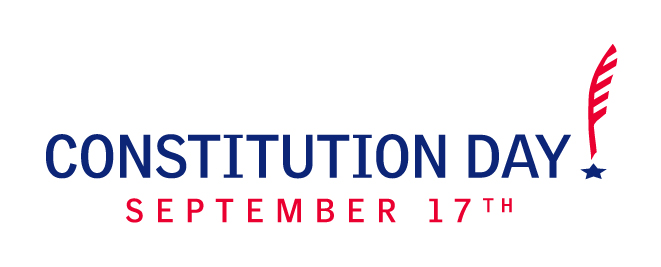National Constitution Day and Citizenship Day: Understanding the Importance of Civic Education
The United States Constitution was signed by the delegates of the constitutional convention on September 17, 1787. Ratified and put into effect in 1789, it is the oldest, functioning written constitution in the world. All federal and state officials are required to take an oath to support and defend the U.S. Constitution. To satisfy the requirements for naturalization, all new citizens must pass a citizenship test which tests their knowledge of its contents and the functioning of the U.S. political system. In 2004, Senator Robert Byrd (WV) sponsored legislation to mandate a National Constitution and Citizenship Day to encourage all citizens to reflect upon and learn about the the foundation of our constitutional system of government.
Basic civic literacy is arguably the cornerstone of a healthy, functioning democracy. Our system of representative government is predicated upon an active and informed citizenry. Unfortunately, while the value of civic knowledge receives considerable lip service, the quality of civic education in the United States can be viewed as lacking. A recent survey by the Annenberg Public Policy Center found that only 26% of people could correctly identify all three branches of government; 33% could not name a single one. Americans' low level of political knowledge has been much lamented and is a popular subject for late-night comedy shows which feature respondents who are unable to answer basic questions about political and current events. But the lack of civic knowledge is really no laughing matter.
For "we the people" to play an active role in shaping the system, laws, and structure of the society in which we live, we must first and foremost understand the system, its rules and processes and the history and events which led to its development. For "we the people" to exercise an informed voice, we must have familiarity with the the range of actors who exercise power in the policy making environment. Knowledge, as they say, is power.
It is the mission of the History and Political Science Department to promote civic literacy and to empower our students in their role as citizens. To that end, we have honored Constitution Day and Citizenship Day through a broad range of activities, including educational programming, nonpartisan voter registration efforts, and the assessment and promotion of civic knowledge. This year, student representatives of the Pre-Law Student Association (PLSA) and History and Government Clubs (H&G Club) handed out free copies of the U.S. Constitution, assisted with voter registration, and administered a quiz for students to test their knowledge of the Constitution.
82 Students took our Constitution Day Quiz. This was a non-random sampling comprised of students who were willing to take a pop-quiz motivated by a free mini-constitution and a chance to win one of three $10 Amazon Gift Cards.
Members of the Pre-Law Student Association (PLSA) and History & Government Club staffed
a Constitution Day Table, assisting with voter registration and handing out
free mini-constitutions and prizes for students taking the Constitution Day Quiz.
|
The results of our quiz were somewhat mixed.
On the basics of separation of powers, 94% of respondents correctly identified the president as the head of the executive branch. Daemen students also did well with recalling specific details (fill-in-the-blank). 73% correctly indicated the length of the term of U.S. Senators is 6 years; 61% correctly identified the number of electoral College votes necessary to win the presidency as 270 and the number of times the Constitution has been amended as 27. Just over half, however, correctly identified declaration of war as one of the enumerated powers assigned to Congress.
Less than 30% could answer a basic question about the constitutional process of impeachment (specifically, that it is the U.S. Senate which tries impeachment cases). And almost half (49%) believed that Congress has the authority to revise the constitution by a simple majority vote in both chambers. (In actuality, an amendment requires two-thirds approval by both Houses of Congress followed by ratification by three-fourths of the states--a very demanding threshold). And only 28% knew that when no candidate receives 270 electoral college votes, the selection of the president falls to the U.S. House of Representatives.
So while our students were proficient on some of the basics, their understanding of more in-depth constitutional processes was lacking, suggesting that there is more work to be done.
For now, many students left happy with a shiny copy of the U.S. Constitution. And three students were the lucky winners of our raffle: Carly Hardick, Bryon Anglade, and Darcy Paradiso. Congratulations!



